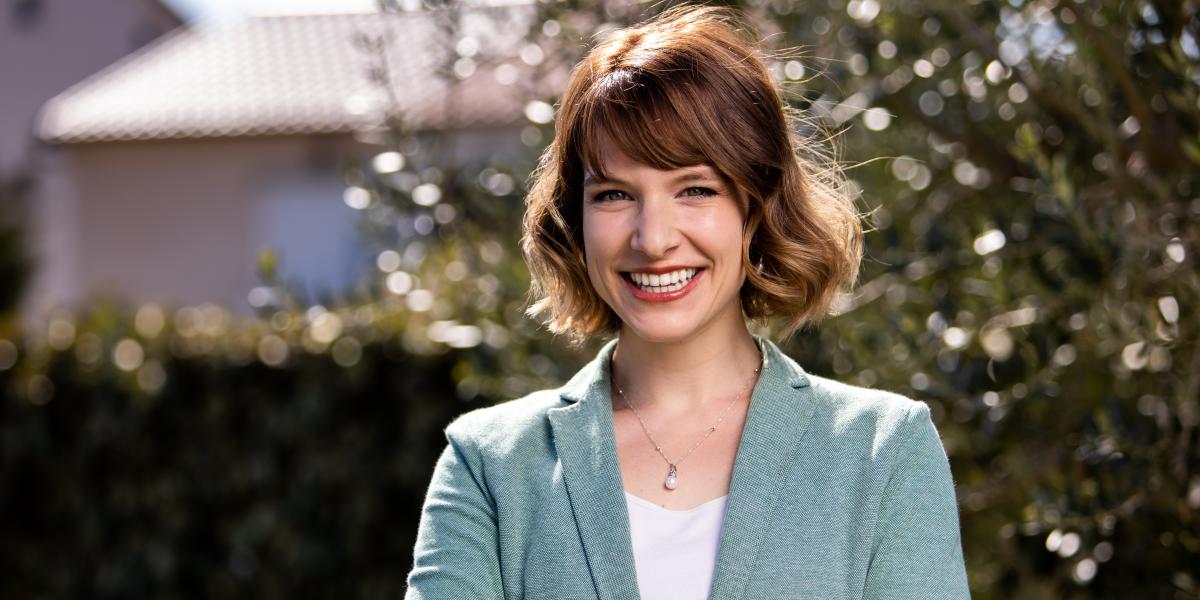CIVICA Women in Research: Nadia Manzoni | European Union University

Nadia Manzoni is a EUU Yehuda Elkana Fellow and PhD candidate at the university’s Doctoral School of Political Science, Public Policy and International Relations. Her dissertation research is about European integration in the area of higher education policy since the establishment of European university alliances. While she is pursuing her research, she is on leave from the European Commission where she worked for nearly a decade as a policy officer in education.
EUU spoke with Manzoni about her experience with CIVICA and her research on European university alliances.
What is your research focus at EUU?
My research combines education and public policy, and I have a work background as a civil servant in the European Commission. Because the European member states have full autonomy in how they craft their education systems, the EU's role in education is more supportive. However, one thing that I noticed with the onset of the European university alliances, which emerged from the unit I was working for in the European Commission, is that since the alliances were funded and established in 2019, there has been a stimulation of activity at European level, both among universities and member states.
For my PhD, I’m exploring the development that these European university alliances, being so numerous, powerful and well-funded, are stimulating better coordination and integration of higher education at the European level. I'm primarily focusing on the European member states and whether, as a result of European university alliances, they are going to integrate their higher education systems.
What would you highlight as capacities and benefits of European university alliances?
Personally, I see alliances as a huge modernization effort for European universities, especially in the current context post-Brexit and with the rise of China and India, the role of the U.S. and global competition for top students.
The alliances have shown to a broad public that university education is a European public good that the European Union has a stake in and should co-finance and support in order for European universities to compete globally. The other thing is that alliances can contribute to a European cohort among young people. The risk is that it becomes elitist and that would be a problem, but that's something that’s being discussed and addressed.
Many public universities in the European capitals are progressive and innovative but are often stifled by archaic national higher education laws. By joining forces with other top universities elsewhere, they've become stronger in demanding changes in higher education to do exciting innovative things in science and education. I think with public universities especially joining alliances, they've become more vocal toward state governments to demand changes. So, the whole initiative collectively has potential to really raise quality and standards in universities across the region.
What is your relationship to CIVICA?
Whenever CIVICA is discussed, I wear two hats because on the one hand, I am a student at a CIVICA member university. So, I take advantage of what CIVICA offers in general to students, for example, the CIVICA doctoral conference last fall. Then I always have my second hat on as a researcher, observing how CIVICA works because European university alliances in general are the topic of my dissertation.
Another relationship to the alliance is that I recently received seed funding through CIVICA’s thematic activities call for a project called “Knowledge and Informal Diplomacy: The Transformative Impact of CIVICA on Global Challenges”. For that, I’ll be working together with postdocs from Bocconi University, European University Institute, SGH Warsaw School of Economics and the London School of Economics. We are merging the two “hats” I mentioned because all of us are researchers of either higher education policy, higher education teaching and learning, or political science in the education sector.
What do you think is unique about the CIVICA alliance?
Every alliance is unique. That's the whole beauty of alliances – there is no imposition of how they should be, what they should look like, who should be in them and what they should work on. It turns out there's a lot of harmonization in the way many alliances end up organizing their governance systems and decision-making processes, but beyond those technical aspects, every alliance is unique.
CIVICA seems to be building on the strengths of the member universities, pooling resources and becoming even stronger in the social sciences. This brand of a “European university of social sciences” allows CIVICA to really specialize in offering top education and research in the social sciences which no other alliance has chosen as its branding strategy. This also enables CIVICA to market itself towards policy makers as the center of excellence in cutting edge social science research and offer high quality policy advice across the EU.
What other aspects of higher education reform can be influenced by European university alliances?
There's something that is quite visionary in the potential of the alliances. All of them were, as part of their funding mandate, asked to commit to working on sustainable development goals. Every alliance had to name their different work areas according to those goals, for example, fighting climate change or countering anti-democratic movements.
I think that potential could be even further developed. Thinking about it, arguably the smartest people in Europe are sitting in our universities as faculty, deans, rectors and alumni. This intelligentsia of Europe can really address the many challenges that society is facing.
Individual universities alone do probably have a hard time influencing politics and reversing the trend of lack of belief in science and so on. But now we have 500 strong institutions within 50 European alliances – that’s such a mass of smart people! If we carefully steer what this huge collective is working on and align in communicating our research and getting involved in debates around climate change and key issues, I feel like that would be the best thing that can happen to Europe.
Last updated: March 7, 2024

